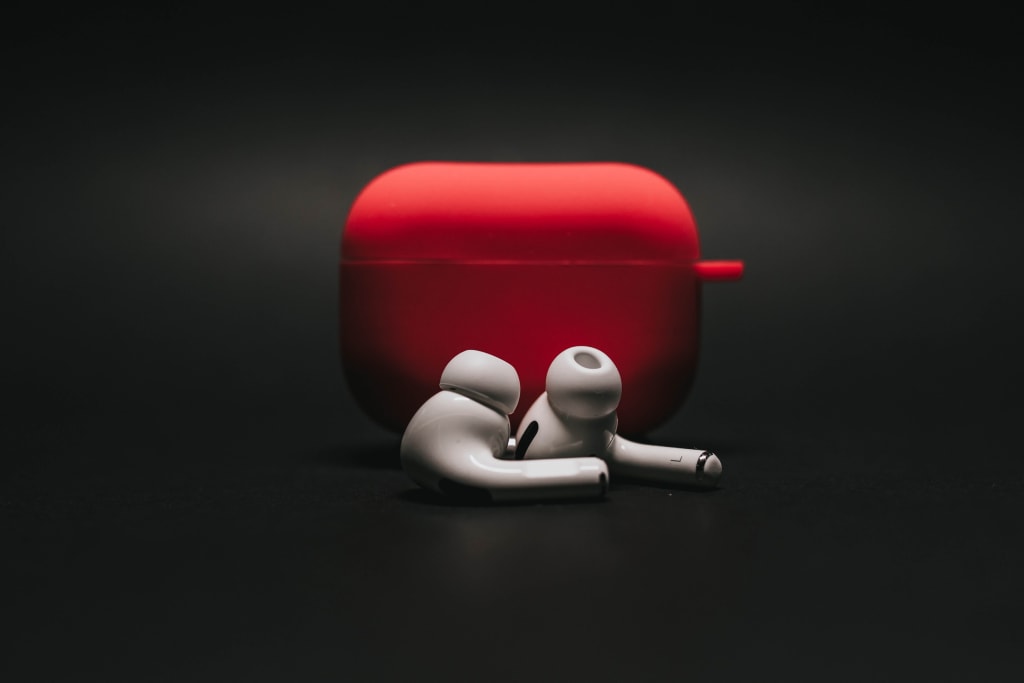Audible & Audio Up Release The Playboy Magazine Interviews
Ali, Friedan, Sinatra, Mae West and more...

This is a trigger warning. What you’re about to hear is a “Boomer story.” So before I start, get it out of your system. Roll your eyes. Furrow your brows. Said aloud, “jeez!”
In the 1960s and !970s, Playboy magazine was at the height of its powers. It wasn’t just a magazine. It was a social, psycho-sexual, and controversial icon. Back then, magazines mattered — a lot. And Playboy was one of the most influential — right up there with Time, Newsweek, Reader’s Digest, and TV Guide.
Yes, I can hear you saying that Playboy was only popular because of the centerfold and adjacent photos of young women in varying degrees of exposure. But there was more to the magazine. (Yes, I can hear you doubt me, Thomas).
There were the Vargas Girls, which were erotic paintings in the magazine for over 20 years. The artist, Alberto Vargas, was a Peruvian-born artist who became famous in the 1940s as the creator of iconic World War-II era pin-ups for Esquire magazine known as “Vargas Girls.”
Playboy magazine was also sought after because of their infamous, often bawdy, Playboy jokes. Here’s a brief one:
Why do pirates love Playboy Magazine?
You’d think it’s for the booty, but they really read it for the arrrticles.
Also during the time, it was a standing joke that men claimed that they only bought Playboy “for the articles.”
Regardless of the purchasing motivation, those famous interviews in the magazine garnered a lot of attention in the zeitgeist. Why? First, because Playboy managed to corral famous and controversial people for the interviews. Second, because often what these famous people said made news. It was the typical “water cooler” discussion material back then.
Playboy describes these interviews this way: “For generations of fans, the Playboy Interview was revered as the gold standard in American journalism. To read it in its totality is to glimpse a record of everyone who mattered in the history of the 20th and 21st centuries; kicking off a remarkable run of public inquisition that has featured just about every cultural titan of the past half century.”
So it’s no surprise that Playboy — and Audio Up Media — have announced the release of the first season of The Playboy Interviews: Icons & Iconoclasts podcast series, exclusively from Audible.
An all-star line-up of actors voice seven of the most iconic Playboy Interview conversations, with Rosanna Arquette as Betty Friedan, Taye Diggs as Muhammad Ali, Michael Shannon as Tennessee Williams, Maya Hawke as Helen Gurley Brown, Kevin Corrigan as Frank Sinatra, Natasha Lyonne as Mae West and Gael Garcia Bernal as Salvador Dali. Writer and journalist Molly Jong Fast, whose mother, the “Fear of Flying” author, Erica Jong sat for the September 1975 interview, provides a spoken introduction to the series and addresses how important these interviews remain and why they should be celebrated.
Listen to all seven episodes of The Playboy Interviews: Icons & Iconoclasts here only from Audible, available now.
Thanks to Audible, listeners can hear those unabridged interviews as if they were in the room. Each conversation offers a unique look into not just the individual portrayed, but the time and place of the interview itself. “The Playboy Interviews: Icons & Iconoclasts” was adapted, produced and directed by Audio Up’s chief creative officer Jimmy Jellinek. Executive Producers include Playboy’s Chief Brand Officer, Rachel Webber, and Audio Up CEO Jared Gutstadt.
“I hope these interviews can serve as inspiration for subject and journalist alike,” Maya Hawke said. “An interview often reaches more people than the art you are being interviewed about. It was an honor to be asked and to gain a better understanding of brave women with big mouths and sharp minds.”
“What a wonderful idea and wonderful opportunity,” added Michael Shannon. “From a time when interviewing was an art form, as thrilling as the artist being interviewed. An honor to be asked.”
“We’re thrilled to reintroduce these iconic Playboy Interviews to a new generation of Playboy fans,” said Rachel Webber, Playboy’s Chief Brand Officer. “The Playboy Interviews: Icons & Iconoclasts is a deep dive into the evolving cultural perceptions and the American psyche — each of these iconic conversations feels just as relevant today as they did decades ago.”
About Each Episode
In playing Betty Friedan, Rosanna Arquette showcases The Feminine Mystique author and mother of the modern women’s movement, in a famously confrontational interview from Playboy’s 40th Anniversary Issue which took aim at the magazine for its leering objectification of women.
Muhammad Ali, who is portrayed by Taye Diggs, is shown in 1964, as a fledgling Heavyweight Champion, just months after defeating Sonny Liston. He is still searching for his voice underneath all the bombast.
Maya Hawke plays the legendary Cosmopolitan editor Helen Gurley Brown. The 1963 interview is prescient in its portrayal of abortion, female sexuality and liberation, years before the women’s movement truly kicked off.
Salvador Dali is shown to be a manic dervish of creativity, teetering on the edge of madness. Actor Gael Garcia Bernal brings out the humor and childlike sweetness from the potentially deranged surrealist that few seldom see.
Frank Sinatra, played by the fantastic Kevin Corrigan in for the crooners now-famous February 1963 interview, showcases a Sinatra sounding wholly “Un-Sinatra” as he attempts to expound on the nature of religion, nuclear disarmament and philosophy in hopes of shaking off his Rat Pack image and impressing John F. Kennedy who had barred the crooner from the White House at the behest of his brother Bobby.
Mae West, inhabited by the incomparable Natasha Lyonne, is revealed as a triumphant figure who hides behind her lascivious image. At age 78, West had returned with a vengeance as a camp hero of Gore Vidal’s provocative Myra Breckenridge, only to break the last Hollywood taboo: showing that an older woman could not only get top billing but could also be seen as a sex object.
Michael Shannon plays the brilliant, anguished playwright, Tennessee Williams who famously sat for Playboy’s 1973 Interview. He delivers a treatise on the symbiosis between good and evil while opening his life to inquisition; discussing his sex life, drug use and deteriorating health. Paranoid, funny and alternatively hostile and charming, Williams famously quipped, “If I got rid of all my demons, I’d lose my angels.”
History of the Playboy Interview
It was 1962, and Playboy founder and editor Hugh Hefner was thinking of adding a new interview feature to the eight-year-old Playboy magazine. The team began to sort through unpublished material, and a young associate editor named Murray Fisher uncovered a partial manuscript written by an up-and-coming journalist named Alex Haley. Haley had honed his writing skills while serving in the U.S. Coast Guard, eventually becoming its first chief journalist.
The manuscript was a Q&A, originally conducted for the defunct Show Business Illustrated, between Haley and jazz trumpeter Miles Davis. Fisher was so intrigued by Davis’s extensive comments on race relations in America — which he talked about more than he did music — that he asked Haley to further develop the piece. Haley later found himself boxing with Davis at his gym to win over the musician’s trust.
Published in the September 1962 issue, Haley’s work became the inaugural Playboy Interview, launching one of the most respected and vibrant franchises in print media. The first-ever question: “Linked with your musical renown is your reputation for bad temper and rudeness to your audiences. Would you comment?”
Playboy has published more than 500 interviews since Davis’s. The elegant, pointed and provocative question-and-answer format Haley established remains highly regarded in the world of journalism, and it has appeared in nearly every issue of the magazine since 1962, featuring such iconic figures as Martin Luther King Jr., Malcolm X, John Paul Sartre, Princess Grace, Fidel Castro, Bob Dylan, John Lennon and Yoko Ono, Steve Jobs, Whoopi Goldberg and Maya Angelou.
Recent Playboy Interviews have featured Tarana Burke, Jay-Z, Scarlett Johannson, Cecile Richards, Jeremy O. Harris, Christiane Amanpour and Jemele Hill.
*******
Check out these interviews. First, because they can offer listeners a luxury box seat to the mindset of the 60s and 70s. You’ll be better able to understand why Grandpa is so weird. Second, because Audible has hired well-known people who possess the talent to bring these interviewees to life in your ears. All the interviews are ear candy, but, to me, the Ali, Friedan, and Mae West interviews sparkle with even more luster.
About the Creator
Frank Racioppi
I am a South Jersey-based author who is a writer for the Ear Worthy publication, which appears on Vocal, Substack, Medium, Blogger, Tumblr, and social media. Ear Worthy offers daily podcast reviews, recommendations, and articles.






Comments
There are no comments for this story
Be the first to respond and start the conversation.